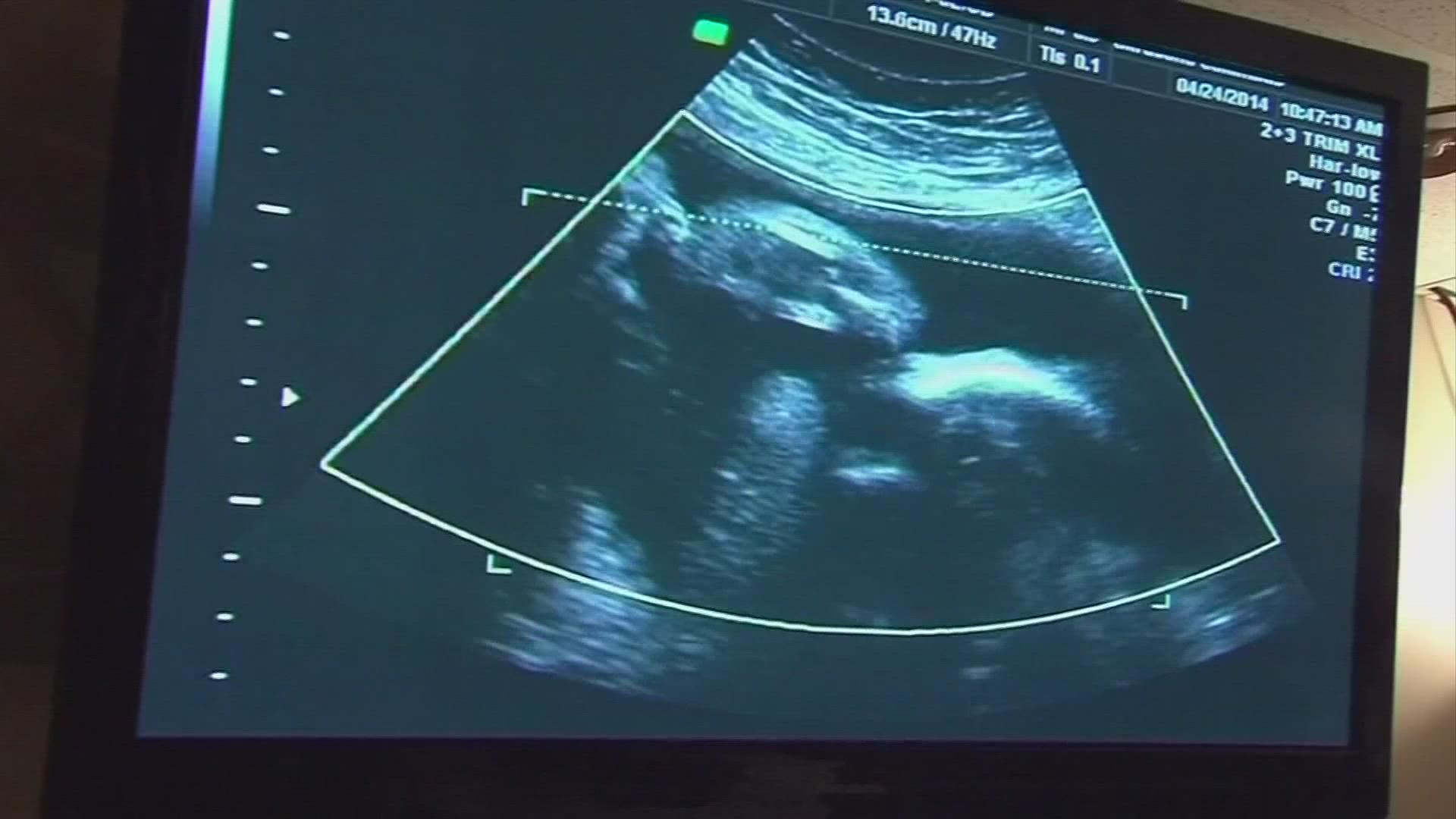COLUMBUS, Ohio — A Hamilton County judge has extended the temporary restraining order blocking Ohio’s Heartbeat Law, or S.B. 23.
In his original ruling back in September, Judge Christian Jenkins agreed with the plaintiffs that the law, which went into effect shortly after the U.S. Supreme Court overturned Roe v. Wade, discriminates against women and that, under the law, patients will suffer irreparable harm.
“S.B. 23 clearly discriminates against pregnant women and places an enormous burden on them to secure safe and effective health care such that it violates Ohio's Equal Protection and Benefit Clause and is therefore unconstitutional,” the judge wrote in his order.
10TV examined some of the court filings related to this case, including a 46-page document containing affidavits from medical workers from abortion clinics across the state.
The affidavits feature stories from at least 31 patients who faced hardships in seeking abortions in the wake of the new law.
The medical director of Planned Parenthood Southwest Ohio Region described S.B. 23 as causing “mass confusion and panic” when it went into effect. She said many patients were extremely upset, some threatening to hurt themselves because they were so distraught.
“We have had at least 3 patients threaten to commit suicide,” the affidavit states. “Another patient stated that she would attempt to terminate her pregnancy by drinking bleach. Another asked how much Vitamin C she would need to take to terminate her pregnancy.”
A doctor from the Northeast Ohio Women’s Center described a pregnant high school senior with hyperemesis, or excessive vomiting, who could not even sit in a classroom. She was hoping to end her pregnancy to finish her schooling, but she was turned away after Ohio’s ban went into effect. The court documents state that she later ended up in the hospital on suicide watch.
The doctor also described two patients with ectopic pregnancies, which S.B. 23 does not apply to, who met with doctors who were afraid to treat them without being sure there was no intrauterine pregnancy. In one case, the patient’s fallopian tube ruptured.
“I am concerned that the law's stiff criminal penalties are deterring some physicians from providing even legal care that is medically necessary,” the affidavit states. “We are also learning of similar situations occurring when patients seek care for miscarriages.
The operations manager for Women’s Med Center of Dayton describes the center being contacted about a 16-year-old girl living in southwest Ohio. She became pregnant after being sexually assaulted by a family member and was unable to have an abortion in Ohio after a fetal heartbeat was detected. She was forced to go to Indiana for the procedure. And the local law enforcement agency then had to travel to that same Indiana clinic to obtain samples for the case.
And a similar case happened in central Ohio. A doctor at Planned Parenthood of Greater Ohio described another minor who was sexually assaulted by a family member and then had to travel to Michigan for an abortion.
“This patient experienced immense trauma from the assault itself and then endured further trauma from a forensic interview alongside a physical exam to collect evidence for the ongoing police investigation,” the document states. “This trauma was further exacerbated by needing to wait over 3 weeks for her appointment. In each step of this process she felt the complete denial of bodily autonomy and safety, something that all people, especially children, should unequivocally have at all times.”
The judge’s ruling extends the temporary block until at least Oct. 12, which extends it beyond the planned Oct. 7 hearing.
Right now, abortions are permitted for pregnancies up to 20 weeks.

